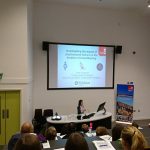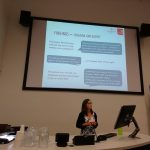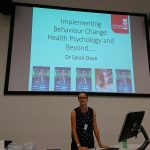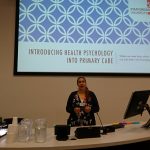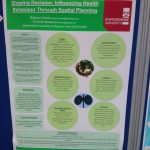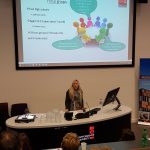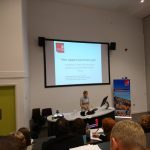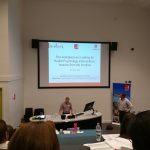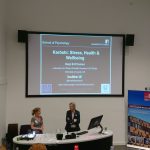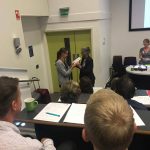Dr Alison Owen appeared on BBC Radio Ulster on May 1st 2020 on the Evening Extra show with Devon Harvey and Julie McCullough to discuss the impact that lockdown may be having on people’s body image.

The discussion was based around the way that people are feeling about themselves during lockdown. For example, in terms of people not being able to get their hair cut or dyed or maintain their usual beauty regime.
Dr Owen talked about the fact that although many people are in lockdown at the moment, they are finding that they do still feel a lot of pressure on their appearance.
She discussed the impact that video calling may have on people’s body image. Many people are taking part in video calling, using applications such as Zoom and FaceTime, both for work and for keeping in touch with friends and family. This means that people are looking at their faces on a screen much more often than they usually would. This can really add to the pressure of maintaining a more polished appearance, so things like making sure that their hair looks presentable, or maybe feeling like they should apply makeup.

Another factor that was discussed during the programme was that video calling can bring attention to appearance-based flaws that people wouldn’t normally be focussing on. So, for example, wrinkles or imperfections that they can see whilst watching themselves on the screen.
Additionally, Dr Owen discussed how people may be spending more time on social media during lockdown, because they aren’t able to get out and see friends and family in person it’s a good way of feeling connected to them. However, this can also lead to pressures in terms of looking at more heavily filtered images of their friends and family as opposed to seeing them in person where they may not look so polished!
You can catch up on the radio interview, which is available up to June 1st. Dr Owen’s discussions are from around 55 minutes in.

The Department of Psychology at Staffordshire University offers a range of undergraduate and postgraduate degrees in Psychology at the University’s £30 million Science Centre in Stoke-on-Trent. The department is home to the Staffordshire Centre for Psychological Research, a large and active group of psychologists, PhD students and researchers conducting work into a variety of psychological disciplines and topic areas.

















